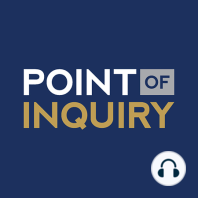50 min listen
Sir Harold Kroto - Science Education and Freethinking
FromPoint of Inquiry
ratings:
Length:
35 minutes
Released:
Mar 29, 2008
Format:
Podcast episode
Description
Sir Harold Kroto, winner of the 1996 Nobel Prize for Chemistry, is in the Department of Chemistry and Biochemistry at The Florida State University. He is a tireless science educator who gives lectures, presentations and workshops to groups of all ages with the aim of communicating his passion for science. He's a fellow of the Royal Society, and was awarded its 2002 Michael Faraday Award for public appreciation of science.
In this discussion with D.J. Grothe, Sir Harold Kroto relates what budded his initial interests in science, including the influence of his childhood Meccano sets, and emphasizes the importance of hands-on exploration and science learning. He recounts the discovery of the Buckminster Fullerene, for which he won the Nobel Prize, and the frustration he has with people outside the sciences who view science as only worthwhile if it is "useful." He discusses his views on religion, and how his background in science has fueled his freethinking and religious skepticism. He explores the question of whether or not science education efforts are succeeding, and details his "buckyball" workshops for children. He also explores whether or not he advances the "religion of secular humanism" when he teaches science deliberately excluding any mention of God or religion.
In this discussion with D.J. Grothe, Sir Harold Kroto relates what budded his initial interests in science, including the influence of his childhood Meccano sets, and emphasizes the importance of hands-on exploration and science learning. He recounts the discovery of the Buckminster Fullerene, for which he won the Nobel Prize, and the frustration he has with people outside the sciences who view science as only worthwhile if it is "useful." He discusses his views on religion, and how his background in science has fueled his freethinking and religious skepticism. He explores the question of whether or not science education efforts are succeeding, and details his "buckyball" workshops for children. He also explores whether or not he advances the "religion of secular humanism" when he teaches science deliberately excluding any mention of God or religion.
Released:
Mar 29, 2008
Format:
Podcast episode
Titles in the series (100)
Max Maven - Magic and Skepticism: The great movie director Orson Welles wrote that Max Maven has "the most creative mind in magic." The New York Times observed that his "category-defying mind-reading veers into conceptual art." The Los Angeles Times stated that his "improvisational... by Point of Inquiry
